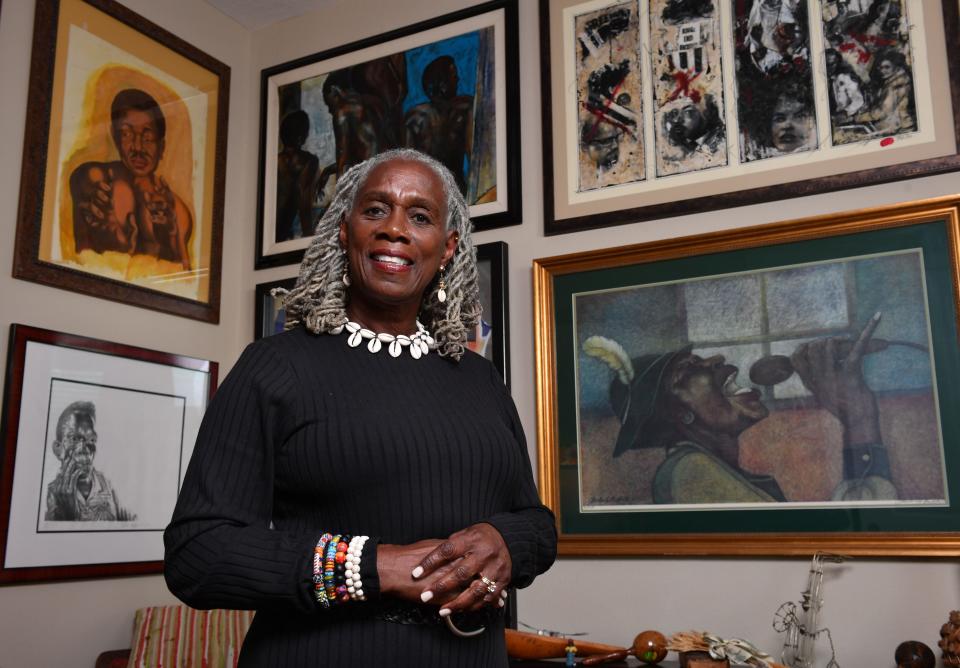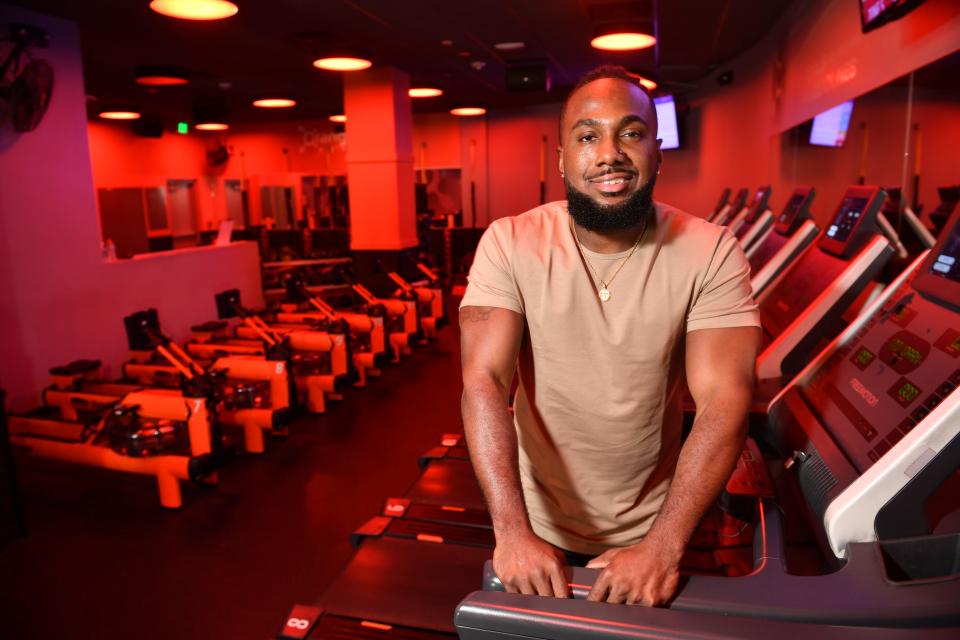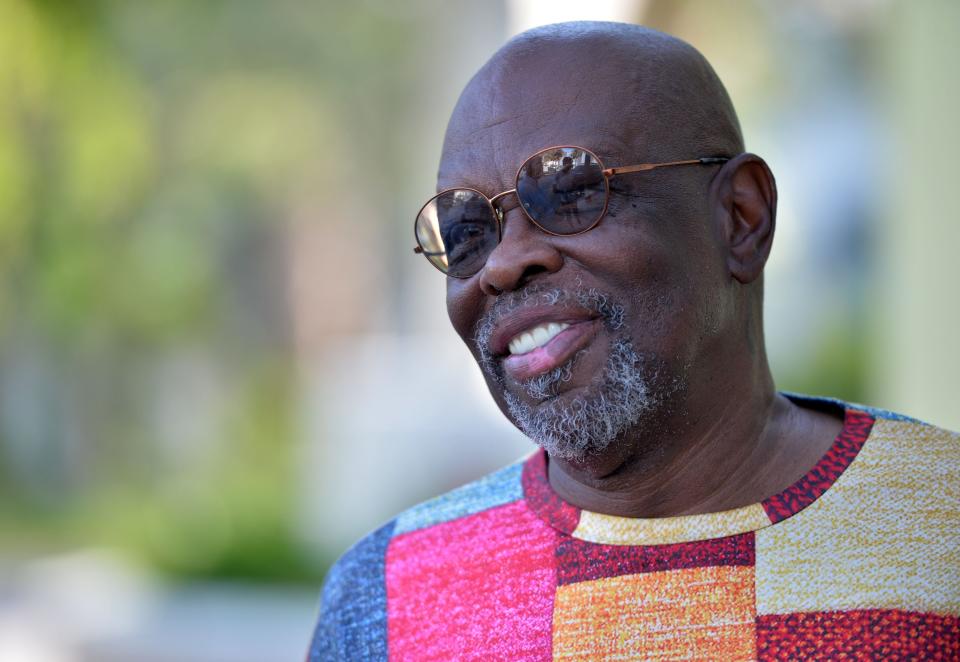Faces of Black Heritage: A look at Black history with Sarasota leaders, trailblazers
In celebration of the nationally observed and recognized Black History Month, the Herald-Tribune continues the Faces of Black Heritage series, showcasing local Black leaders and changemakers who share their views on Black heritage, history and future.
Sarasota has drawn countless residents to the region over the past decade, including an influx of people who put down permanent roots in the area following the global pandemic. Those new residents, weave intricately into the fabric of the Sarasota area, along with existing residents, to create a unique tapestry of knowledge and culture.
These changemakers and leaders offer their unique take and share their perspectives on how fully understanding Black history, and the Black experience, can better shape the future for all residents.
DR. CARYL SHEFFIELD

Hometown: New Brighton, Pennsylvania
Current city: Sarasota, since 2015.
Occupation: Retired educator, professor emeritus at PennWest California (formerly California University of Pennsylvania)
Age: 72
Black history fact you wish you knew as a child: "I wish I had known that Africa was a continent to be proud of, with scholars, mathematicians, musicians, military leaders, architects, doctors, etc. All I had learned about Africa was there were pygmies and cannibals with rings in their noses and other negative images running around the dark continent. When I was in fourth grade (I was one of three black students in my class of about 30) my teacher asked the class to go home and ask our parents where our ancestors came from. I knew my ancestors were from Africa but I was ashamed to tell the class that because Africa had such a bad connotation. I never even asked my parents the question. I told my class that I didn’t know where my ancestors were from."
What’s one piece of Black literature — either contemporary or historical, banned or available — that you feel that everyone should read? "Being an educator, I’m partial to Carter G. Woodson’s “The Mis-education of the Negro.” But any book by him and W.E.B. Dubois should be read by everyone."
As state political leaders have worked to censor the teaching of Black history and literature and shutter diversity, equity, and inclusion (DEI) initiatives in higher education and beyond, what is one thing you wish more people would do to support or show allyship for Black history and Black people? "If people would just keep an open mind and make decisions on their own instead of blindly following leaders like (former President Donald) Trump and (Gov. Ron) DeSantis, that would help tremendously."
In your opinion, what is the largest barrier that Black people face today? How does that barrier show up in your life or in your family/peers' lives? "The biggest barrier is systemic racism and the refusal of many people to believe that it’s real. There’s no better example than the Florida government. From misguided discussions of critical race theory in the schools to banning books to not approving the AP African American Studies course, just to name a few, we are fighting these barriers daily. I’m grateful to have a community of like-minded people, both black and white, that work constantly to eliminate these barriers. The ASALH Freedom School is an example of how we can work together to counter misinformation and anti-Black sentiment in our community."
How do you envision the future for Black Floridians and Black Americans? Please share with us your Afrofuturism dreams. "I’m very proud of what I see Black Floridians doing to combat the constant attack on Black people. I believe in the African concept of SANKOFA – looking back for guidance for our future. That’s why it’s so important for us to study our history so that we will do everything in our power to remember the past and not to let the same mistakes be repeated."
Favorite soul food dish: Fried catfish
Favorite movie: American Fiction
Favorite adult drink: Dirty vodka martini
Life motto, favorite quote or saying: A poem by Langston Hughes titled “Motto:” “I play it cool, I dig all jive, That’s the reason I stay alive. My motto, As I live and learn, Is: Dig & Be Dug In Return."
Favorite historical city or site for Black heritage: "The Equal Justice Initiative in Montgomery, Alabama. My grandfather, Caesar Sheffield, is memorialized there along with thousands of lynching victims."

RONNIE POWELL
Hometown: Detroit, Michigan
Current city: Sarasota, since 2020
Occupation: Fitness instructor and health/wellness DJ
Age: 36
Black history fact you wish you knew as a child: "I wish I knew that you are Black history. Myself, everything you do is history. I wish I knew the power I had as a kid... to be my inspiration and inspire other people. I wish I could process that when I was younger. People will remember me for doing what I’m doing and that makes me Black history."
What’s one piece of Black literature — either contemporary or historical, banned or available — that you feel that everyone should read? “Black Privilege” by Charlamagne the God.
As state political leaders have worked to censor the teaching of Black history and literature and shutter diversity, equity, and inclusion (DEI) initiatives in higher education and beyond, what is one thing you wish more people would do to support or show allyship for Black history and Black people? "Right now, and where we are as people and as a country, I think social media has helped non-Black people understand us a lot more. I think the younger generation has become better advocates for social justice through it, too. I really wish that their voices could be heard a little more alongside Black voices. The mainstream advocacy from Gen Z is pushing the movement forward and we need more of that. They are our next generation of leaders and they are about it (action) and they call it all out."
In your opinion, what is the largest barrier that Black people face today? How does that barrier show up in your life or your family/peers' lives? "Prejudgment. People assume that because you're Black you are a certain way. I face that barrier every day. Often it manifests in my career as people assume that I’m unprofessional, or that I’m unprepared to do my job because of how I look. If it’s not that, they try to devalue me and expect my services to be priced lower than they are. "
How do you envision the future for Black Floridians and Black Americans? Please share with us your Afrofuturism dreams. "I think African Americans are in more leadership roles, I would love to see that. Being a coach inside Orange Theory is a leadership role, and being a manager at Whole Foods is a leadership role. It feels good to see, no matter where it is. It's not always a CEO at a company, it can be the owner or manager of a gas station. That helps break the mold, it allows people who are under the leader to strive for more and see people that look like them while they're accomplishing that."
Favorite soul food dish: Homemade oven baked mac and cheese
Favorite movie: Remember The Titans
Favorite adult drink: Jack Daniels on the rocks
Life motto, favorite quote or saying: “No bad days.”
Favorite historical city or site for Black heritage: Detroit, Michigan. (Detroit African American Museum and Motown Museum)

WALTER GILBERT
Hometown: Sarasota
Current city: Sarasota
Occupation: Vice president of diversity and inclusion, Marie Selby Botanical Gardens
Age: 72
Black history fact you wish you knew as a child: "That the first recorded birth of an African child here in the colonies was in 1624. His name was William Tucker."
What’s one piece of Black literature — either contemporary or historical, banned or available — that you feel that everyone should read? "Finding Your Roots" by Henry Louis Gates, Jr.
As state political leaders have worked to censor the teaching of Black history and literature and shutter diversity, equity, and inclusion (DEI) initiatives in higher education and beyond, what is one thing you wish more people would do to support or show allyship for Black history and Black people? "Speak out! Show how you feel with your vote. Talk about it and let the people you deal with know where you stand."
In your opinion, what is the largest barrier that Black people face today? How does that barrier show up in your life or your family/peers' lives? "Our financial position, lack of financial knowledge, and lack of access. My grandparents knew nothing about investments and how to handle things of that nature. We, as a group of people, have just in the last 50 years caught up to this because we were not allowed to take part in the system. We could not get the type of financial services afforded to our white counterparts just because of the color of our skin."
How do you envision the future for Black Floridians and Black Americans? Please share with us your Afrofuturism dreams. "The beat goes on. We will continue to run into bumps in the road, but we always have. Our children are more worldly than ever and will bring that to bear to make positive changes across the board."
Favorite soul food dish: Oxtails
Favorite movie: Glory
Favorite adult drink: Black Russian
Life motto, favorite quote or saying: "Agitate, Agitate, Agitate!"
Favorite historical city or site for Black heritage: Charleston, South Carolina
This article originally appeared on Sarasota Herald-Tribune: Sarasota's Black leaders weigh in on the future of Black Americans

